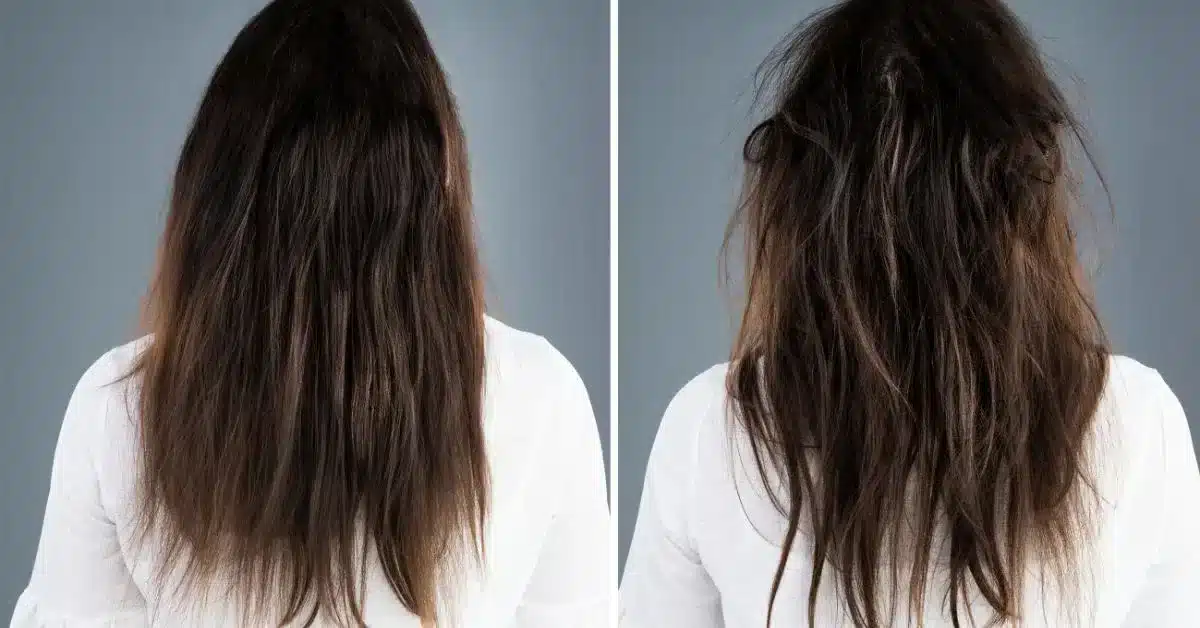Understanding Hair Thinning in Women: Causes and Treatment Options
Hair thinning in women can leave them feeling self-conscious and defeated.
It is natural for women to experience some degree of hair loss as they age.
According to the American Academy of Dermatology, around 12% of women start experiencing hair thinning by 30.
Excessive hair thinning can be distressing as it may lead to hair loss and can impact a woman’s self-esteem.
The article will explore the causes of hair thinning in women and some tips for managing and preventing it.
Causes of hair thinning in women
Hair thinning in women can have various causes, including genetic factors, nutritional deficiencies, stress, and medications.
Understanding these causes can help address the underlying issue to promote healthy hair growth.
Following are some of the causes of thinning hair in women,
Hormonal Imbalances
Hormonal imbalances due to Menopause, pregnancy, and Thyroid disorders can cause hair thinning in women.
They cause hair thinning in women by disrupting the normal hair growth cycle.
Excessive Androgens (male hormones) can shrink hair follicles and produce thinner, shorter hairs.
Similarly, Estrogen, thyroid hormones, and Cortisol imbalances can also affect hair growth and result in hair thinning.
Additionally, hormonal changes during Menopause can lead to severe hair thinning and loss.
Genetics
Hereditary factors can also play a prominent role in hair thinning.
If your mother, grandmother, or other female relatives experienced hair thinning, it is likely that you will as well.
One of the most common causes is Female Pattern Baldness, which is inherited from either or both parents.
This form of hair fall causes hair miniaturization and eventual hair thinning.
Other genetic factors contributing to hair thinning in women include autoimmune conditions and certain medical conditions.
Nutritional deficiencies

A lack of key nutrients such as iron, zinc, and vitamins B and D can cause hair thinning in women.
Nutritional deficiencies can cause hair thinning in women by depriving the hair follicles of essential nutrients for healthy hair growth.
Iron deficiency can reduce the nutrients carried to the hair follicles, resulting in weakened and thinning hair.
Similarly, deficiencies in biotin, zinc, vitamin D, and protein can all contribute to hair thinning and breakage.
Stress
Prolonged stress can cause hormonal imbalances, leading to hair thinning in women.
Stress can cause hair thinning in women by triggering Telogen effluvium.
It causes the hair follicles to prematurely enter the resting phase leading to increased shedding and thinning of the hair.
Stress can also cause hormonal imbalances, leading to other types of hair loss like Female Pattern hair loss.
Medications
Certain medications, such as blood thinners, antidepressants, and chemotherapy drugs, can cause hair thinning as a side effect.
Some medications, like chemotherapy drugs, can cause hair thinning in women by disrupting normal hair growth.
Medications, such as Anticoagulants, Retinoids, and Beta-blockers, can cause hair thinning as a side effect.
The extent and duration of medication-induced hair loss can vary depending on the drug and the individual’s genetics and overall health.
Managing hair thinning in women
Managing hair thinning in women requires lifestyle changes, proper hair care, and medical interventions.
Here are some tips for managing hair thinning,
- Eating a healthy diet consisting of plenty of protein, vitamins, and minerals can help to prevent hair thinning
- Stress-management techniques such as meditation, yoga, or deep breathing exercises can help reduce stress levels and prevent hair thinning
- Avoid harsh hair treatments such as chemical straightening or bleaching, and use gentle hair care products designed to promote hair health. Be gentle when brushing, and avoid pulling on your hair too tightly when styling
- Supplements such as biotin, collagen, and keratin promote hair health and prevent thinning
- If your hair thinning is severe or causing significant distress, seeking professional advice may be helpful. They may prescribe topical medications such as Minoxidil to treat thinning hair
Conclusion
Hair thinning in women can be a distressing and challenging experience.
The causes of hair thinning may either be hormonal imbalances, stress, medications or any other underlying condition.
Women can effectively restore their hair’s health and vitality by adopting a healthy lifestyle and seeking medical advice.
Frequently Asked Questions
What can women do about thinning hair?
Women can take several steps to manage and prevent hair thinning, including eating a healthy diet, managing stress, following a hair care routine, considering supplements, and seeking professional help.
Can hair grow back after thinning?
Yes, in some cases, hair can grow back after thinning. This will depend on the underlying cause of the thinning. If the reason is temporary, such as stress or medication, hair growth may resume once the cause is addressed.
Why is my hair thinning so fast?
Hair thinning can occur due to various factors, such as hormonal imbalances, genetics, nutritional deficiencies, stress, or medications. These factors interfere with the hair growth cycle and shrink the hair follicles, causing hair thinning.
Can hair thinning be reversed in females?
Yes, hair thinning can sometimes be reversed depending on the underlying cause. Addressing nutritional deficiencies, hormone imbalances, or other health issues may promote hair regrowth.
What causes hair-thinning females?
Various factors, including hormonal imbalances, genetics, nutritional deficiencies, stress, medications, and underlying health conditions, can cause hair thinning in females. Identifying the specific cause is important in determining appropriate treatment options.
WowRx uses only high-quality sources while writing our articles. Please read our content information policy to know more about how we keep our content reliable and trustworthy.






